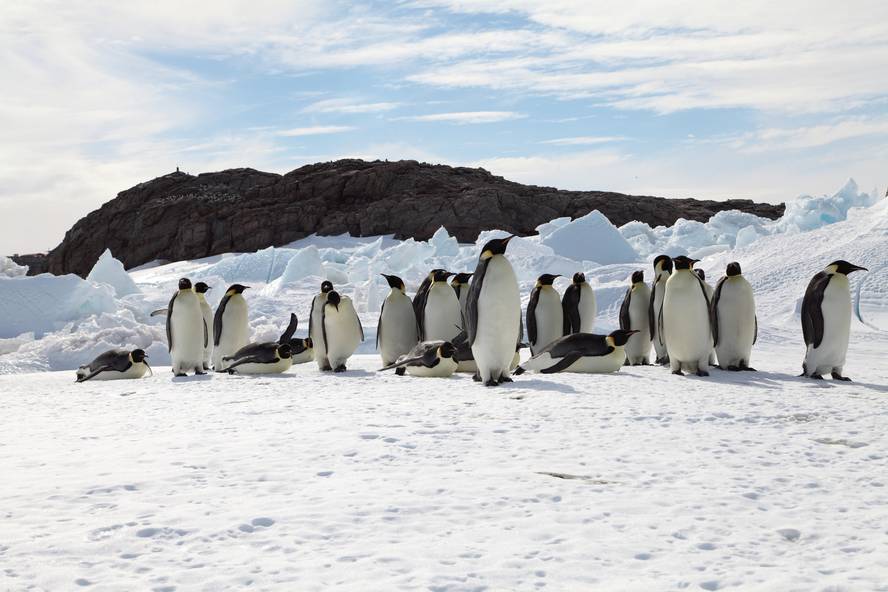Emperor Penguin Colonies: Pessimistic Forecasts
Text created by automatic translator Elia and has not been subsequently revised by translators. Elia Elhuyar
The population of the colonies of Antarctic emperor penguins can be halved by 2100, according to an international research group in its article published in the journal Nature Climate Change. The colonies of the Emperor Penguin live on sea ice and the balance between colonies and ice is difficult. If there is too much ice, penguins should travel too long for food. When the ice decreases, on the contrary, krill decreases, the main source of food for penguins. The research team led by marine biologist Stephanie Jenouvrier has announced that if sea ice decreases at the rate announced by climate models developed so far, two-thirds of penguin colonies will drop by half before the end of the century. Consequently, the emperor penguin should be included in the list of species threatened by climate change.






